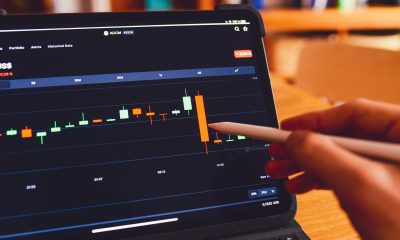Africa
Morocco Charts a Citizen-Centered Path for Ethical and Inclusive AI
The National Conference on Artificial Intelligence in Rabat united officials, researchers, and partners to shape Morocco’s ethical, inclusive AI strategy. With strong political backing, the event highlighted AI’s role in job creation, education, and social justice. Cross-sector collaboration and international partnerships underscored Morocco’s commitment to responsible, citizen-centered, and sovereign AI development.

The National Conference on Artificial Intelligence brought together government officials, economic stakeholders, researchers, and international partners for two days in Rabat. The goal: to make AI a lever for ethical, sovereign, and inclusive development.
This is a pivotal moment in Morocco‘s digital trajectory. At Mohammed VI Polytechnic University, the spotlight has fallen on artificial intelligence (AI), a disruptive technology that simultaneously embodies economic promise, sovereignty issues, and ethical dilemmas.
In this regard, the National Conference on Artificial Intelligence alternated between technological demonstrations, sectoral workshops, and high-level debates, with a first day dedicated to innovation and a second focused on political and diplomatic issues. This format reflects the Kingdom’s ambition to build an AI strategy that serves its citizens while contributing to its international influence.
A strong political will
During his opening speech, the head of government reiterated that AI can no longer be ignored. According to him, it represents both an opportunity and a challenge. Morocco, he emphasized, is devoting 11 billion dirhams to it, with the objectives of training 100,000 young people, creating 240,000 jobs by 2030, and structuring a value-creating digital economy.
A message amplified by Amal El Fallah Seghrouchni, Minister Delegate for Digital Transition, who emphasized an approach rooted in national reality.
“It is undeniable that we must collectively and institutionally realize that Artificial Intelligence is not a future technology, but a current reality,” she said, emphasizing its potential to reshape public services, from health to regional planning.
The minister also emphasized the approach adopted by her department: “We are approaching it as a fundamental institutional responsibility that requires rethinking public thinking, modernizing decision-making tools (…) and building new relationships of trust between citizens and the state,” she said. This is therefore not a simple technological shift, but a genuine project of public and democratic reform.
AI at the service of social justice
Beyond technical innovations, Amal El Fallah Seghrouchni recalled the social ambition underlying the Moroccan strategy. “One of the major paradoxes of Artificial Intelligence lies in its potential to perpetuate inequalities, or to reduce them,” she explained, calling for collective mobilization to ensure that this technology benefits all citizens equally.
“We want to make Artificial Intelligence a driver of social justice and equitable access to opportunities and resources, allowing different stakeholders to benefit equally from this transformation,” the minister said.
To achieve this, several priority projects have been identified, including support for technology startups, capacity building for SMEs, and massive investment in training. “This involves investing in human capital by launching ambitious programs aimed at increasing the number of graduates in digital specialties, as well as professional reintegration programs, programming schools, and innovation incubators,” she explained.
Ministers in dialogue on applied Artificial Intelligence
For the first time, several members of the government gathered around the same table to discuss concrete applications of AI in their respective sectors. This cross-departmental dialogue exercise heralds a more integrated governance of Artificial Intelligence in Morocco, breaking away from compartmentalized ministerial approaches.
From education to energy, employment to health, each speaker outlined the challenges and promises of Artificial Intelligence in their respective fields, with the key to coordinated courses of action. Mohamed Saad Berrada, Minister of National Education, Preschool Education, and Sports, emphasized the potential of existing databases in his department.
“We are fortunate at the ministry to have MASAR, a database of nine million children. We have been storing data for about ten years. And data is the basis of Artificial Intelligence ,” he explained.
He detailed several use cases currently being tested, particularly to combat school dropouts. “A solution as simple as taking a photo of the list of absences and automatically entering them using Artificial Intelligence (…) simplifies things,” he emphasized.
Thanks to this innovation, absences are now integrated into the system, a crucial step forward in identifying dropouts and trying to re-engage them. The minister also discussed long-term planning for school infrastructure needs, an area where AI can become a major lever. “Only AI, with the database and algorithms, allows us to have sufficiently detailed planning to avoid shortages or surpluses,” he stated.
A stage open to regional cooperation
On the business side, Chakib Alj, president of the CGEM, insisted on the structuring role of Artificial Intelligence in the Moroccan productive fabric.
“AI is no longer a luxury. Now it’s a necessity,” he insisted, calling for rapid adoption by economic operators.
While he acknowledges that Artificial Intelligence will lead to job losses in certain sectors, he sees it above all as a lever for integration and value creation: “It’s something that will allow us, as economic operators, to accelerate the economic development of our country, to also accelerate integration and economic inclusion,” he declared, while calling for transitions to be anticipated.
Morocco is actively pursuing technology diplomacy by inviting several high-level foreign representatives. Among the international speakers, Martin Tisné, CEO of AI Collaborative, praised “a national ambition and long-term commitment to AI systems based on local history, priorities, values, and languages.”
He also announced a strategic rapprochement with the Kingdom, mentioning the imminent signing of a memorandum of understanding with the Moroccan government, “formalizing our shared commitment to promoting open, inclusive, and values-based Artificial Intelligence.” But beyond institutional commitments, Tisné chose to address the audience directly.
“To you, Moroccan citizens, what do you want from AI? What does a society look like where Artificial Intelligence works for you, works with you?” he asked. An open question, one that could well outline the contours of future digital sovereignty.
__
(Featured image by Immo Wegmann via Unsplash)
DISCLAIMER: This article was written by a third party contributor and does not reflect the opinion of Born2Invest, its management, staff or its associates. Please review our disclaimer for more information.
This article may include forward-looking statements. These forward-looking statements generally are identified by the words “believe,” “project,” “estimate,” “become,” “plan,” “will,” and similar expressions. These forward-looking statements involve known and unknown risks as well as uncertainties, including those discussed in the following cautionary statements and elsewhere in this article and on this site. Although the Company may believe that its expectations are based on reasonable assumptions, the actual results that the Company may achieve may differ materially from any forward-looking statements, which reflect the opinions of the management of the Company only as of the date hereof. Additionally, please make sure to read these important disclosures.
First published in LES ECO.ma. A third-party contributor translated and adapted the article from the original. In case of discrepancy, the original will prevail.
Although we made reasonable efforts to provide accurate translations, some parts may be incorrect. Born2Invest assumes no responsibility for errors, omissions or ambiguities in the translations provided on this website. Any person or entity relying on translated content does so at their own risk. Born2Invest is not responsible for losses caused by such reliance on the accuracy or reliability of translated information. If you wish to report an error or inaccuracy in the translation, we encourage you to contact us

-

 Fintech2 weeks ago
Fintech2 weeks agoDruo Doubles Processed Volume and Targets Global Expansion by 2026
-

 Business3 hours ago
Business3 hours agoDow Jones Stalls Near Record Highs as Inflation-Fueled Rally Awaits Next Move
-

 Business1 week ago
Business1 week agoTopRanked.io Weekly Affiliate Digest: What’s Hot in Affiliate Marketing [Health Trader Affiliate Program Review]
-

 Africa5 days ago
Africa5 days agoAir Algérie Expands African Partnerships























